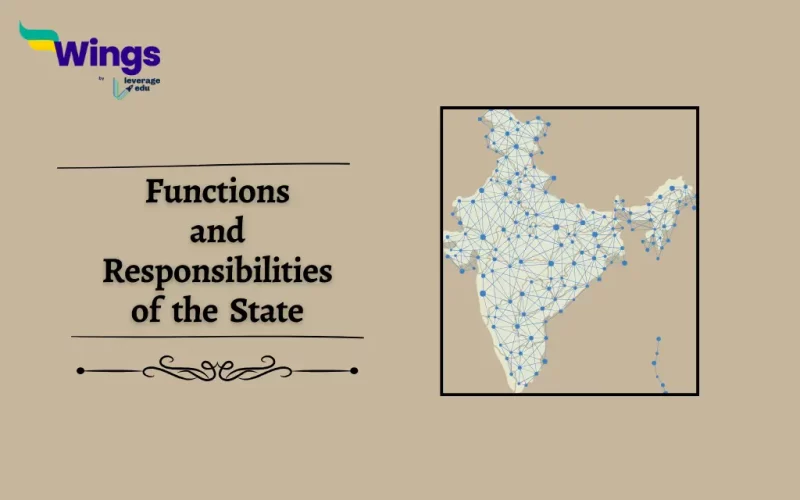The functions of the state government are comparatively easier and notably different from those of the Union government. The Constitution of India has stated rules and regulations for both the State and the Union separately and clearly in order to avoid any dispute in any case. In India, the State does not withdraw any level of authority from the centre, nor are they the creation of the centre. Furthermore, the State and the Union both of them require the constitution of India for decision-making powers. In this blog, you will get to know about the Functions and Responsibilities of the State, which includes the Structure and Functions as well.
Also Read: Preamble of the Indian Constitution: History, Sources, Components
What is the Structure of the State Government?
Moreover, the structure of the state government is quite similar to the Union government.
Executive: The governor and the Chief Minister along with the council of ministers are the key executives of the state. The President of India appoints the Governor of the state for a tenure of 5 years. The governor is the sole executive power holder. The CM along with the council of ministers has the real power that enables the smooth functioning of the state.
Judiciary: Any criminal, civil, etc. forms of litigation are handled by the State government that holds the sole jurisdiction of the state. In some cases, a state court may have to answer the Supreme Court of India, which may override their judgment.
Legislature: In all the 29 states of India there is a different legislative assembly consisting of the governor and one house or two houses as and when required. There are 7 states named Bihar, Andhra Pradesh, Telangana, Jammu and Kashmir, Karnataka, Maharashtra, and Uttar Pradesh that have bicameral legislation.
What are the Functions of the State?
Subjects under the sole jurisdiction of the State governments are included in the State List (List II). Law enforcement, public health, agriculture, and land are a few examples.
- Police and Public Order: Upholding law and order inside the state; the state is in charge of policing and criminal justice.
- Health and Sanitation: Hospitals and public health programs fall mostly under state control. Regulation and development of public health and sanitation are under state jurisdiction.
- Agriculture and Irrigation: State-level irrigation and water management; agricultural policy and development are all taken care of by the state.
- Land and Revenue: The state is principally in charge of maintaining land records and implementing land reforms. This includes control over land, including agriculture and revenue collection.
- Education: Creating state-level education policies and managing and administering educational establishments are some of the core niches a State has to look after.
- Budget: It is the responsibility of the state to prepare for the union budget every year.
- Water supply: The state government is responsible for water supply which includes drinking water, irrigation, and other purposes.
What are the Functions of the Local Government?
Local government includes the management of entities like panchayats and municipalities as well as programmes for rural and urban development.
- Police: Within their borders, state governments can establish, manage, and oversee police units.
- Public services: Include hiring and overseeing state employees, as well as state governance and public administration.
Also Read: All the Emergency Provisions in the Indian Constitution (Exams Notes)
What are the Roles and Responsibilities of the State Government?
Furthermore, the roles and responsibilities of the State Government are as follows:
- The State government is supposed to look after the proper implementation of the law and order within the political boundaries of the state.
- The matters of security within the state are looked after by the police and public order.
- The state government has to continuously adopt new strategic planning and goals for the educational and agricultural sectors to contribute to the growth of the nation.
- The proper functioning of the state and the union government is an important and integral part of the nation’s growth.
FAQs
The provision of justice and the upkeep of law and order are the two most important roles.
The state should fulfil the basic functions, such as providing security, maintaining law and order, and delivering public services.
Executive control over administration, rule-making to run the country, natural and political crises, and disasters, financial management by fiscal supervision, and budget presentation also fall under the union’s responsibilities.
Hope it covers all the important information about the Functions and Responsibilities of the State. Moreover, you can always seek the help of Civics and Polity to increase your knowledge! If you want to know more about topics like this, then visit our general knowledge page!
 One app for all your study abroad needs
One app for all your study abroad needs













